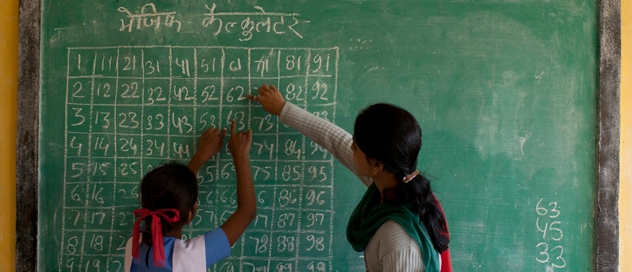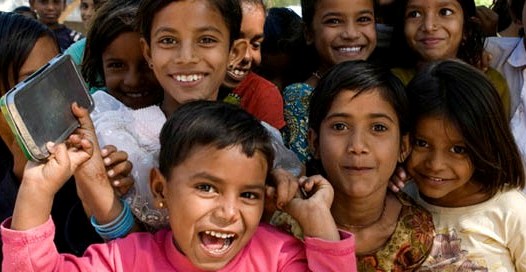The dynamics of corporate social responsibility (CSR) in the country are changing – the unfocused charities are becoming ‘seed funds’ for practical social programmes, social organisations are conceptualising scalable development programmes, and then there is this new law… With the objective of gaining some sort of a glimpse into the thoughts of individuals who are playing an important role in this process of ‘dynamic change’ as well as to hear out their stories about change, CauseBecause is speaking to them and publishing their responses to a common thread of questions. Here’s a conversation from the first lot of the series – called ‘Conversations around
CSR’ – with Safeena Hussain, founder and executive director of Educate Girls
Keeping in view the areas mandated as part of CSR, how does it impact your organisation’s focus and investment?
As a donor-funded organisation, Educate Girls is hopeful that the CSR mandate will encourage the private sector in India to invest more in the social sector. At the same time, we will look to the private sector not only for funding but also for their technical support, expertise and opportunities to share our work with the broader community. As an organisation, we are actively exploring these possibilities and trying to understand how we can best partner with the corporate and private sector.
What will be the impact, if any, on the NGOs or social enterprises (you engage with) and the communities/causes they support?
It remains to be seen how the CSR mandate will impact the NGO community, including Educate Girls’ partners. However, Educate Girls will continue to focus on the cause of improving education outcomes for out-of-school girls. This has been our focus since the organisation was founded in 2007 and we will continue to focus on this area.
Are the projects currently implemented by your organisation ‘sustainable’? To the extent possible, do elaborate upon the complexities.
Sustainability is at the core of Educate Girls’ work. Our model is designed to increase the level of community ownership and engagement with the education system. We rely on existing community structures and resources to achieve impact in the communities in which we work. Educate Girls does not directly deliver services, but fosters awareness about the value of girls’ education and builds the capacity of the community to understand
and advocate for improvements in their schools.
As a result, we do not create dependency on Educate Girls; instead, we provide communities with the tools to make improvements to the existing public education/school system so that it fosters an enabling environment for girls’ education.

Please share the journey of one project implemented by your organisation, with focus on its impact at the grassroots.
There have been many stories of Educate Girls’ programme and its impact on girls, their families as well as communities. One such story is of Sharda, a resident of Devalipabuji village in Rani Block (Rajasthan). Sharda is a 15-year-old child bride born in a family with five children. She was married at the age of four. According to the custom, she had to stay with her parents until she reached puberty. After only a handful of years in school,
Sharda had to drop out due to financial difficulties. It was during this time that the Child Tracking Survey identified her and a volunteer from Educate Girls met her family.
With an Educate Girls representative guiding and supporting her, Sharda expressed her desire to finish her education. With our support, she successfully re-enrolled and is now in 8th standard. The happier and confident child is also the head of her school’s Bal Sabha (girls’ council). The first person in her family to receive any education, Sharda’s aim now is to study further and not move to her husband’s house. Her aim is to change the
perspective of the entire community.
Since 2007, Educate Girls has brought more than 52,000 girls like Sharda back to school and has improved the quality of schools for over 500,000 children.

One insightful thought, experience or learning that you will like to share with your counterparts as well as other individuals in the causes domain.
A given community’s culture and societal traditions, like in the case of Sharda, are believed to be the factors that
encourage practices like child marriage, poor education, etc. These are also the reasons for their continuing poverty, not just in Rajasthan but across India.
At Educate Girls, we believe that the same communities also hold the solutions to the challenges they face. We
work within the dynamics of these communities and focus on awareness, training and support that result in changing the perspective. Our efforts make traditional communities the initiators of the desired impact. We empower communities to be the drivers of change. Educate Girls’ model has been at the forefront of
ushering in communities-led solutions for improving girls’ education.
Also read:

